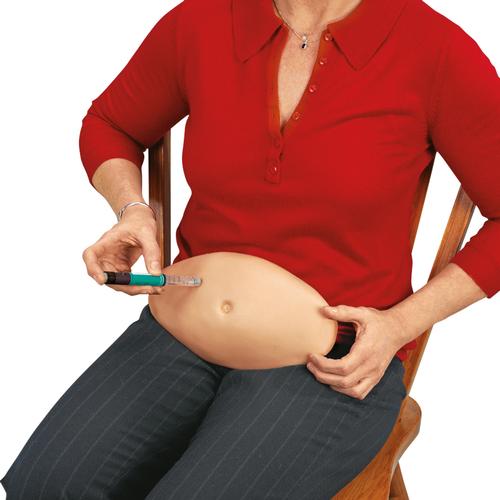What You Have to Know About Insulin
Let’s talk insulin.
Mention the “I word” to some low carbohydrate dieter, or maybe a clean eater, and you will virtually discover their whereabouts turn white because blood drains using their face in abject horror.
For many years, insulin will be the big crook inside the nutrition world.
They reference insulin as “the storage hormone” and feel that anywhere of insulin in the body will immediately allow you to set down new fat cells, gain weight, and lose any amount of leanness and definition.
Fortunately, that’s not quite the case.
In reality, while simplifying things when it comes to nutrition and training is frequently beneficial, this is the gross over-simplification with the role of insulin in the human body, and also the facts are entirely different.
Faraway from to be the dietary devil, insulin is really absolutely nothing to hesitate of in any respect.
What Insulin Does
The beginning of the insulin worrier’s claim (that insulin is a storage hormone) holds true Body of insulin’s main roles is usually to shuttle carbohydrate that you simply eat round the body, and deposit it where it’s needed.
For many people that every the carbs you eat are turned into fat though.
You store glycogen (carbohydrate) inside your liver, your muscle cells and your fat cells, and this will only get shoved into those pesky adipose sites (fat tissue) when the muscles and liver are full.
Additionally, unless you are in a calorie surplus, you merely cannot store excess fat.
View it by doing this –
Insulin is a lot like employees in a warehouse.
Calories would be the boxes and crates.
You could fill that warehouse fit to burst with workers (insulin) however, if there won’t be any boxes (calories) to stack, those shelves won’t get filled.
So if you are burning 3,000 calories each day, and eating 2,500 calories (and even 2,999) your body can’t store fat. No matter whether all those calories result from carbs or sugar, you shall not store them, because your body demands them for fuel.
Granted, this wouldn’t be the world’s healthiest diet, but because far as science is worried, it comes to calories in versus calories out, NOT insulin.
It Isn’t JUST Carbs
People fret over carbs having the biggest effect on insulin levels, and the way carbohydrate (particularly with the simple/ high-sugar/ high-GI variety) spikes insulin levels, but lots of other foods raise insulin too.
Pure whey protein, for example, is very insulogenic, and may spark a spike, specially when consumed post workout.

Dairy products too may relatively large effect as a result of natural sugars they contain, as well as fats can raise insulin levels.
Additionally, the insulin effect is drastically lowered to eat a mixed meal – i.e. the one that contains carbs plus protein and/ or fat.
This slows the digestion as well as the absorption with the carbs, resulting in a much lower insulin response. Add fibre to the mix too, and the raise in insulin is minimal, so even if i was focused on it before, the perfect solution is straightforward – eat balanced, nutrient-dense meals, so you don’t need to worry.
Insulin Builds Muscle
Going back to the concept of insulin like a storage hormone, as well as the notion that it delivers “stuff” to cells:
Fancy choosing a guess at what else it delivers, beside carbohydrate?
It delivers nutrients in your muscle tissues.
Therefore, if you’re forever always keeping levels of insulin low for anxiety about extra weight, it’s highly unlikely you’ll get ripped optimally. It’s for that reason that I’d never put clients looking to bulk up to make lean gains on the low-carb diet.
No Insulin Can Still Equal Lipid balance
As opposed to all of the low-carb diet practitioners again, you are able to store fat when insulin levels are low.
Daily fat when consumed within a caloric surplus is really transformed into excess fat tissue much more readily than carbohydrates are, showing that after again, extra weight or weight-loss relies on calories in versus calories out, not insulin levels.
Why low-Carb (and Low-Insulin) Diets “Work”
Many folk points on the scientific and anecdotal proof low-carb diets doing its job reasoning for keeping levels of insulin low.
I can’t argue – a low-carb diet, where insulin release is kept low can simply work, however, this has hardly any about the hormone itself.
Whenever you cut carbs, you normally cut calories, putting you in a deficit.
Additionally, the average person will eat more protein plus much more vegetables when going low-carb, in order that they feel far fuller and eat less. Plus, protein and fibre both have a high thermic effect, meaning they really burn more calories through the digestion process.
Main point here: Insulin – Not too Bad In the end
You should not bother about insulin in case you –
Train hard and often
Eat a balanced macronutrient split (i.e. ample protein and fat, and carbs to fit activity levels and personal preference.)
Are relatively lean.
Eat mostly nutrient-dense foods.
Don’t have any problems with diabetes.
You’ll probably still store fat with low insulin levels, and you’ll burn fat and create muscle when insulin occurs.
Investigating insulin in isolation as either “good” or “bad” really is a prime illustration of missing the forest for the tress, so take it easy, and let insulin do its thing while you target the real picture.
For additional information about ozempic buy please visit web portal: look at this now.
